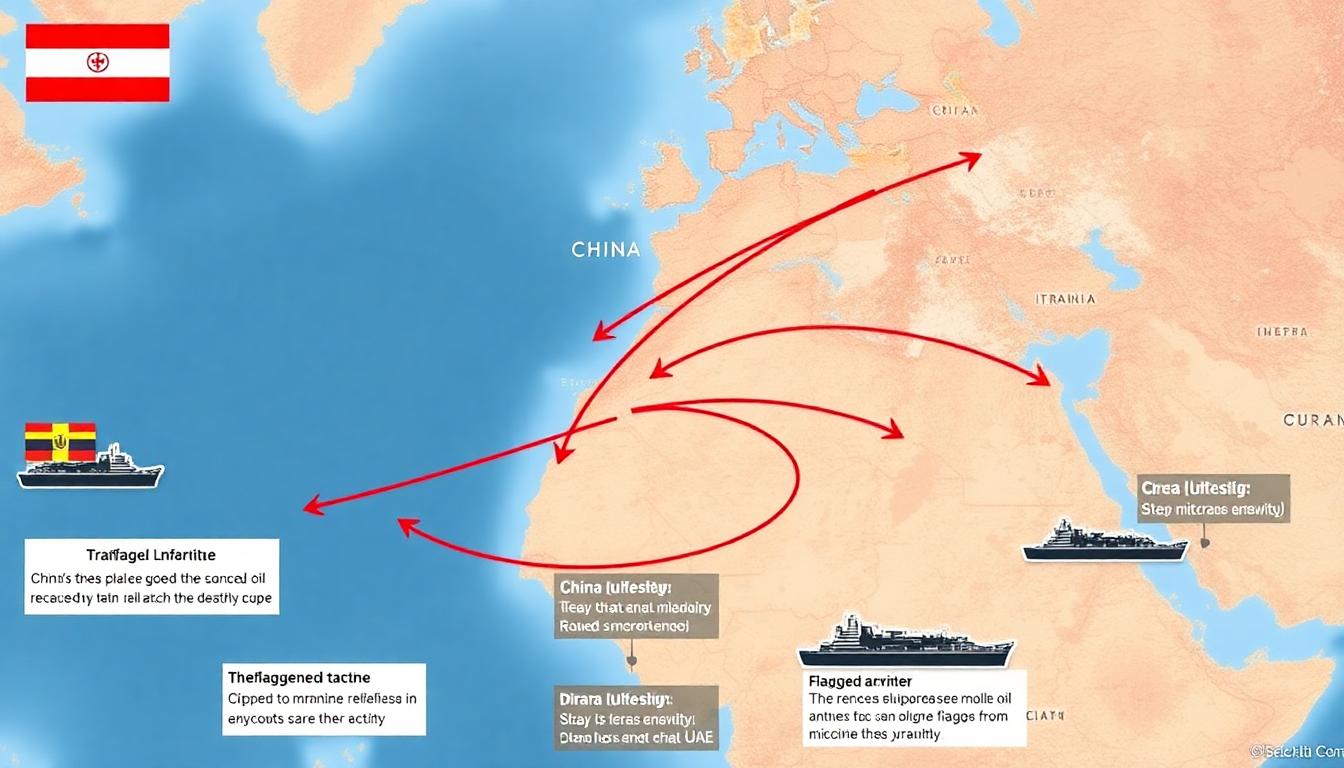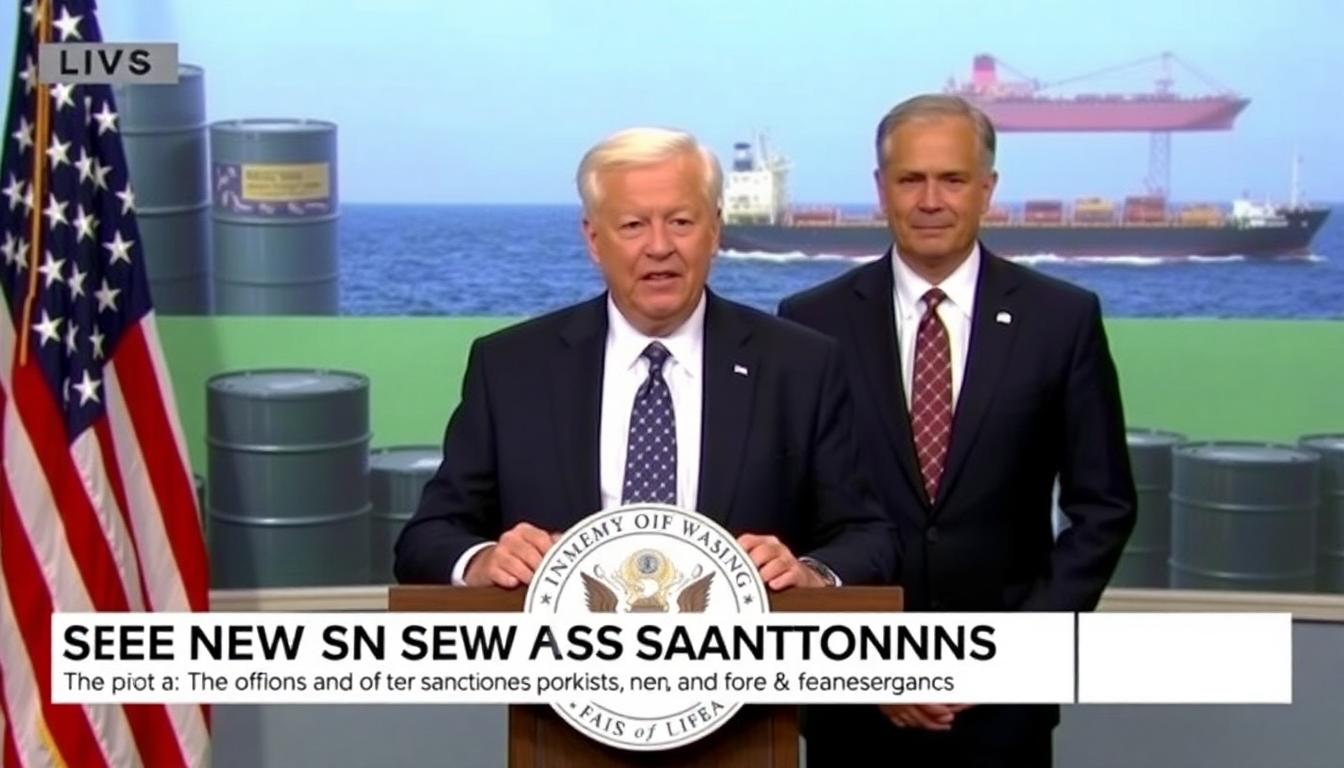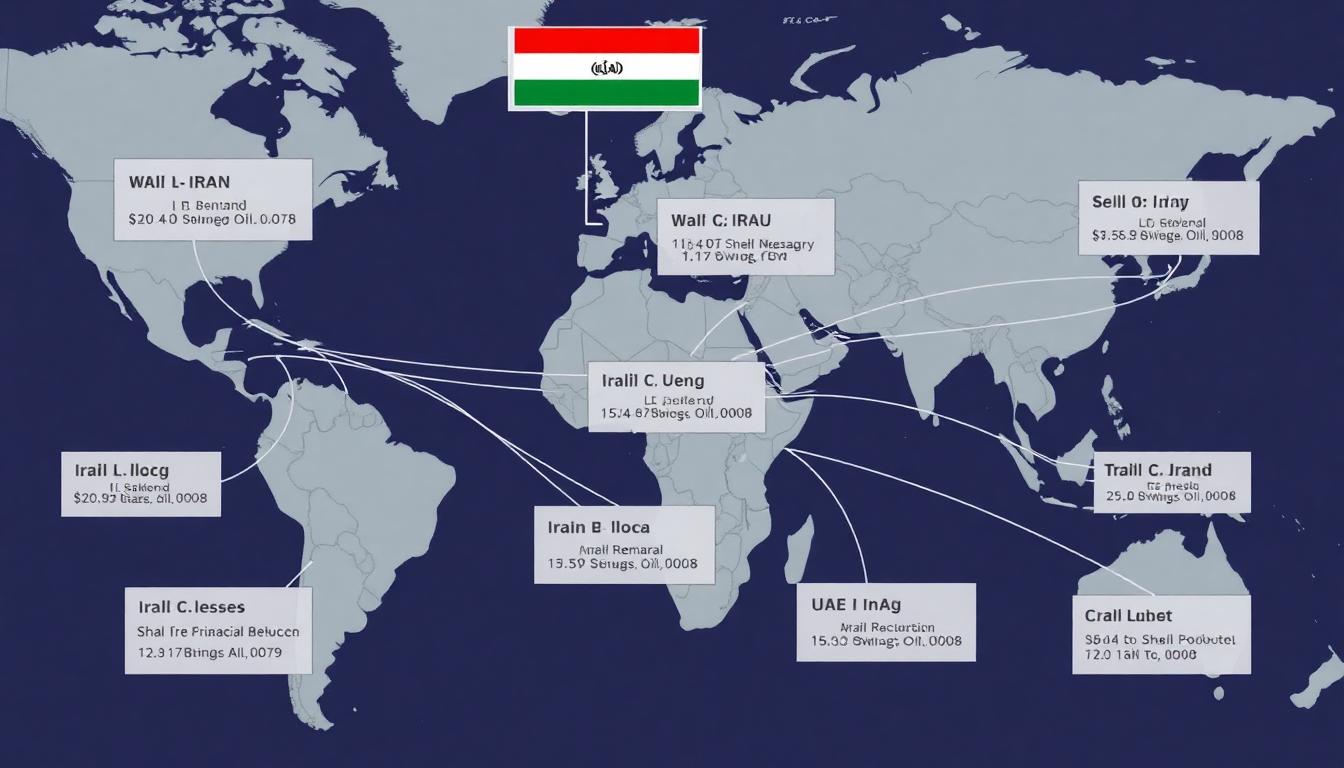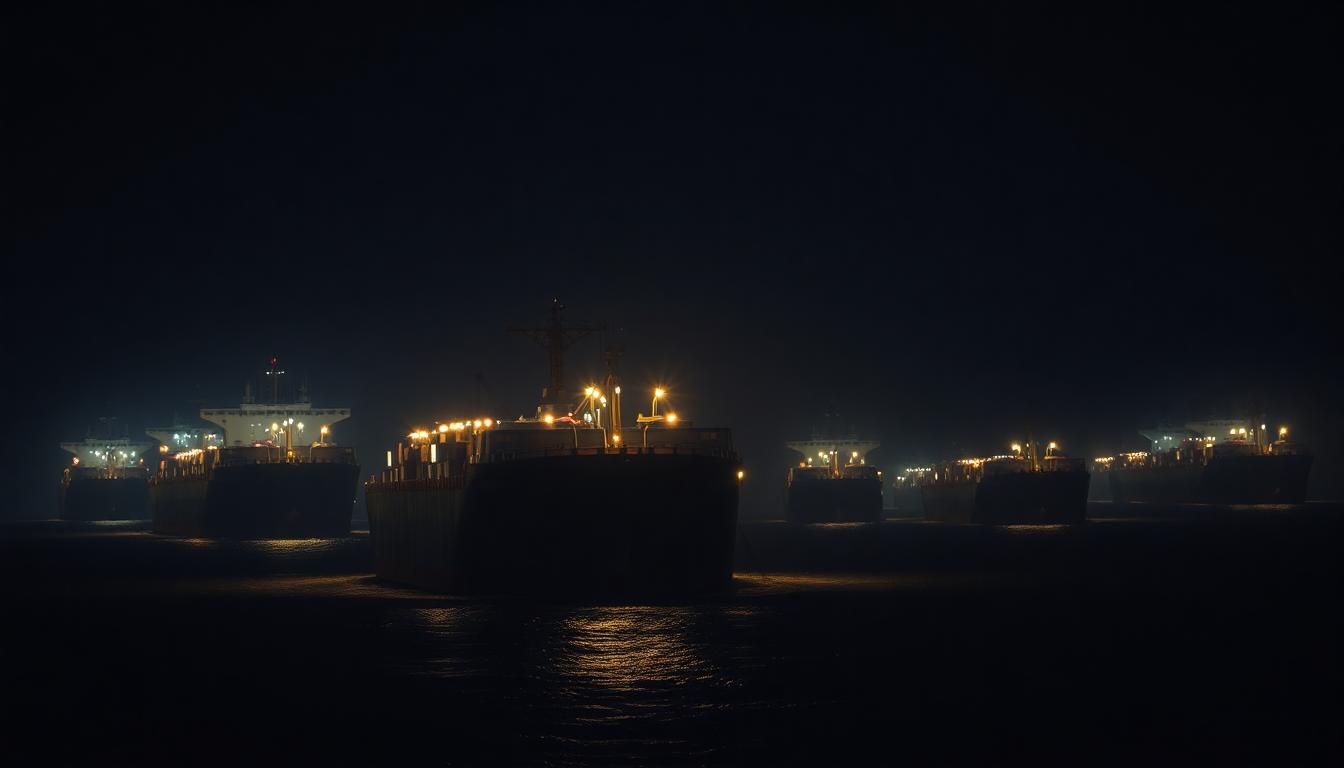Introduction
In July 2025, the US government announced its largest set of Iran-related sanctions since 2018. More than 115 people, companies, and over 50 vessels are targeted. The focus is on disrupting Iran’s shadowy network for exporting oil and petrochemicals—a business worth billions, propped up by complex shipping tactics and financial secrecy.
Who’s Being Targeted and Why?
The new sanctions zero in on a network run by Mohammad Hossein Shamkhani, whose shipping empire moves oil from Iran (and Russia) mostly to China and other Asian markets. To hide these operations, the network uses:
- Fleets registered under false flags (Liberia, Panama, Marshall Islands)
- False paperwork and shell companies
- Secret management switches and AI signal jamming
The goal: sell oil and dodge international monitoring.
Mapping the Oil Routes

Crude oil leaves Iran, passes through the UAE and global shipping zones, and ends up in China, India, and beyond. UAE-based companies like Marvise SMC DMCC and Crios Shipping handle much of the shipping. The flow is masked using false documents and routine deactivation of ship tracking systems (AIS).
US Response and Sanctions Measures

The US froze all assets linked to the designated people, companies, and vessels. US citizens and businesses are now banned from any dealings with them. The sanctions even require disclosure of any American-controlled assets or transactions connected to the shipping network.
Financial Laundering and Shell Companies

Much of Iran’s oil cash flow is disguised through a web of offshore entities—in places like Switzerland, Cyprus, Singapore, and the Marshall Islands. These front companies handle logistics, payments, and cargo documents. Funds are shuffled through wire transfers and commodities trades to make the transactions hard to trace.
What’s the Broader Impact?
- Iran’s oil revenue chain becomes riskier and more expensive.
- UAE, Indian, Chinese, and Turkish firms are now under tighter watch.
- International companies face big penalties for aiding Iran’s export routes.
With over 50 tankers targeted, insurance and port services are tightening, making shipping less profitable and more dangerous for Iran’s shadow fleet.
Why Do These Sanctions Matter?
These actions are meant to choke off funding for Iranian programs seen as destabilizing by the US. By making it hard for Iran to export oil, the US aims to force a political and economic rethink by Tehran’s leadership.
Conclusion
The July 2025 sanctions are a high-tech effort to stop Iran’s oil money from flowing through secretive networks. They’re a warning to global shippers, banks, and traders: support Iran’s sanctioned industry at your own risk.
To contact Us Click Here .

